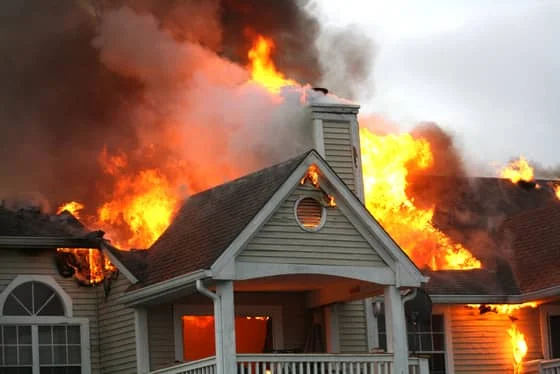The lingering presence of smoke in your kitchen signals more than just mild inconvenience; it often points to past cooking mishaps, grease buildup, or burnt food. Learning how to get rid of smoke smell in kitchen spaces is crucial, as the porous surfaces of walls, curtains, and furnishings tend to trap these stubborn odors. Ignoring such odors may disrupt your home’s comfort and adversely affect the quality of the air you breathe.
The good news? Understanding how to get rid of smoke smell in kitchen spaces is simple. With the right methods and basic tools, you can easily refresh your kitchen and restore its inviting atmosphere.
Identify the Source of the Smoke Smell
Before tackling the odor, it’s crucial to pinpoint its source.
Determine the Cause
 Odors resulting from smoke in a kitchen can arise from numerous origins, including charred food, grease fires, or tobacco smoke. Each category of smoke may necessitate distinct cleaning approaches. For instance, the smell of burnt food often infiltrates both the air and various surfaces, whereas grease fires may create an oily film that retains the odor. Identifying the source aids in selecting the most appropriate remedy for your particular circumstances.
Odors resulting from smoke in a kitchen can arise from numerous origins, including charred food, grease fires, or tobacco smoke. Each category of smoke may necessitate distinct cleaning approaches. For instance, the smell of burnt food often infiltrates both the air and various surfaces, whereas grease fires may create an oily film that retains the odor. Identifying the source aids in selecting the most appropriate remedy for your particular circumstances.
Locate the Affected Areas
Smoke smells extend beyond the air, as they infiltrate walls, cabinets, curtains, and even household appliances. Common areas to check include:
- Walls and ceilings (smoke rises!)
- Range hoods and filters
- Fabrics like curtains, rugs, and towels
- Cabinet interiors and countertop surfaces
Addressing the entire kitchen, not just the obvious spots, is key to thoroughly eliminating the odor.
Quick Solutions Using Common Household Items
Sometimes, you already have odor-fighting tools right in your pantry.
Vinegar as an Odor Neutralizer
Vinegar is a powerhouse for neutralizing odors.
- Mix equal parts vinegar and water in a spray bottle and use it to wipe down surfaces like counters, cabinets, and walls.
- For airborne smoke smells, leave small bowls of vinegar around the kitchen overnight to absorb odors.
Though the vinegar smell might initially be noticeable, it dissipates quickly, leaving your kitchen refreshed.
Baking Soda for Absorbing Odors
Baking soda is fantastic for absorbing stubborn smells.
- Scatter it on rugs, curtains, and other fabric materials. Allow it to stay for a few hours, or overnight, before you vacuum.
- For surfaces covered in grease and enduring smoke odors, combine water with baking soda to produce a paste. This paste should be applied for scrubbing countertops or the surfaces of various appliances.
Activated Charcoal for Airborne Odors
Activated charcoal is a highly effective tool for removing odors from the air.
- Place bowls containing activated charcoal in key locations throughout your kitchen, including countertops and areas adjacent to appliances.
- Change the charcoal every few days for best results.
Lemon and Citrus Solutions
Citrus is another natural deodorizer and doubles as a cleaning agent.
- Boil lemon slices in water to release a bright, zesty aroma into your kitchen.
- Use lemon juice to clean greasy surfaces, making sure to rinse thoroughly with water.
Specialized Products for Faster Results
If seeking a more robust approach, it is advisable to invest in products intended to effectively combat smoke odors.
Odor-Eliminating Sprays and Gels
Specialized odor-neutralizing sprays and gels target smoke odors effectively. Choose a product labeled “safe for kitchens” and apply it to walls, fabrics, and other affected surfaces. Products like Febreze or Fresh Wave are popular options.
Air Purifiers with HEPA Filters
HEPA (High-Efficiency Particulate Air) purifiers are capable of removing smoke particulates and odors from indoor air. To achieve optimal efficiency, consider choosing air purifiers tailored for kitchen environments or smaller rooms.
Enzyme Cleaners for Persistent Smells
Enzyme cleaners are designed to dismantle organic residues that lead to odors, making them an excellent choice for fabrics and upholstery. Users should apply the solution abundantly and comply with the manufacturer’s recommendations for drying and washing.
Deep Cleaning Tips for Stubborn Smoke Smells
If basic solutions don’t work, it’s time to get serious.
Cleaning Walls and Ceilings
Smoke residue often clings to walls and ceilings.
- Use a mixture of vinegar or ammonia with warm water to scrub these areas.
- For deeply embedded odors, consider repainting with an odor-blocking primer and paint.
Tackling Kitchen Cabinets and Appliances
Cabinets and appliances are hotspots for grease and odors.
- Wipe cabinet interiors and often-overlooked appliance areas like grill faces and drip pans.
- Clean and replace range hood filters regularly to prevent odor buildup.
Washing Fabrics
Items such as curtains, rugs, and towels in the kitchen environment can absorb and keep smoke odors. It is recommended to wash these textiles using baking soda or a dedicated laundry deodorizer. If odors persist despite cleaning efforts, it may be necessary to replace these items.
Preventing Future Smoke Smells
Eliminating smoke smells is essential, but preventing them from returning is just as important.
Improve Ventilation
Good airflow can reduce smoke buildup.
- Use exhaust fans while cooking.
- Keep windows and doors open whenever possible.
Cook with Caution
- Monitor your stove to prevent food from burning, and use lids to minimize smoke.
- Regularly clean grease buildup in and around your stove to prevent fires or lingering smells.
Regular Maintenance
- Wipe down surfaces weekly to stop dirt and grease buildup.
- Replace appliance filters and air purifiers on schedule to keep odors at bay.
When to Call a Professional
Should you have utilized all the suggested techniques without success in eliminating the smoke smell, it might be advisable to reach out to a professional cleaning service. This action becomes particularly critical in the event of substantial smoke damage following a grease fire. Professionals are equipped with the appropriate tools and knowledge to address tenacious odors and restore your kitchen to a fresh and clean environment.
Keep Your Kitchen Smelling Fresh
Removing smoke odors from your kitchen may seem daunting, but it’s simpler than it appears with the right tools and methods. Whether you’re refreshing your space or planning on selling a fire-damaged house, using solutions like vinegar, baking soda, air purifiers, and a deep cleaning routine can efficiently restore your kitchen’s freshness and appeal.
Preventing odors is the best approach to maintaining a fresher space. Understanding how to get rid of smoke smell in kitchen areas begins with consistent habits—regular cleaning, efficient ventilation, and careful cooking techniques can keep your kitchen fresh and free from lingering smells.
Got stubborn smells you can’t shake? Don’t hesitate to take action today—your kitchen deserves it.

